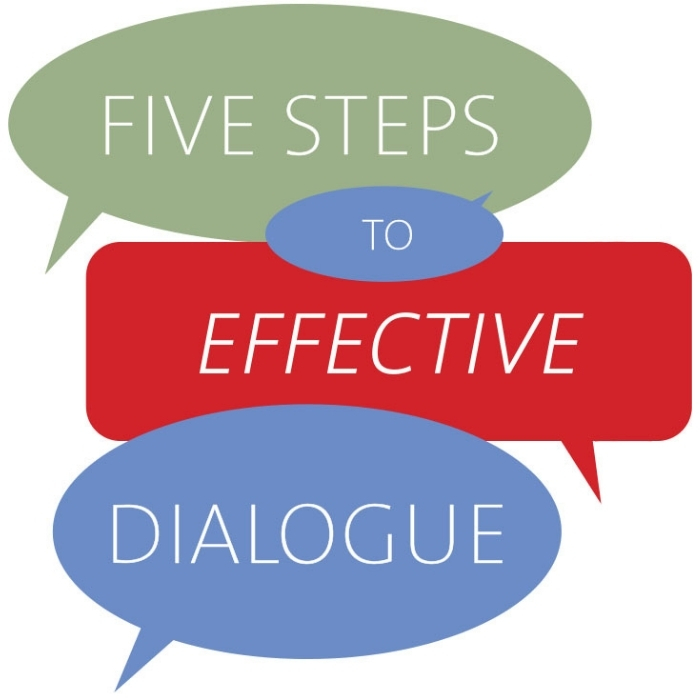SUMMER 2025
Five Steps to Effective Dialogue
How to have that hard conversation
- Story by Anne Santiago

BECAUSE CONFLICTS ARE inevitable in life, we should all learn more effective conflict management skills. When I started my academic journey 30 years ago, I studied complex, communal conflicts that ended in violence. More recently I’ve focused on understanding the development of worldviews that lead to disagreements and, in a highly politicized society like ours, demonization of “the other.” Our unique worldviews are shaped by our beliefs, cultures, identities, and experiences.
Fruitful, constructive dialogue involves acknowledging and accounting for these different worldviews, and it can be a powerful tool for resolving conflicts and simply for better understanding. The following model is useful to those wanting to engage across difference in everyday conflicts.
While constructive dialogue is a powerful tool in resolving larger conflict, I like to use a low-stakes example with students. Problem: what can you do to create a measured, reasonable conversation with your boisterous roommate that might strengthen your relationship and make for a more harmonious home?
![]()
Know Thyself
To truly listen to and understand another person, we need to start with ourselves. Why do I believe what I do? What do I value and why do I value it instead of valuing something else? What components of my culture, upbringing, experience have led me to value a calm, quiet living space?
![]()
listen for learning
We need to learn to listen to another person without judgment. This requires self-restraint, openness, and practice. What does your roommate say about their behavior? What do they value? How did their family structure and culture influence their behavior in the house?
![]()
ASK clarifying Questions
When listening to another’s story in hopes of gaining understanding, we need to ask questions that help us go deeper and clarify the tension. “Could you tell me more about that experience?” or “Why do you think you value X?” Maybe your roommate comes from a family where “boisterous” means something different than it means to you. A nonjudgmental, inquisitive tone helps prevent the tension from rising further.
![]()
Avoid Judgment but Don’t Accept Falsehoods
Throughout the conversation, intentionally focus on what is being said and why. While the purpose of constructive dialogue is to deepen understanding and foster the skills necessary to live and work in diverse spaces, it does not require that we convince others of the “rightness” of our views or vice versa. But, if the conversation reaches a point where someone is sharing factually incorrect information, you should stop them. Dialogue does not require accepting falsehoods. In the problem of the boisterous roommate, you should assume your roommate is being vulnerable, truthful, and shares their stories willingly to help strengthen your relationship.
![]()
Work Together
We don’t have to be friends with everyone we work with, but we should be able to find a way to productively resolve differences in order to achieve a goal. Maybe your roommate can keep their voice down after 10 p.m. If they forget, maybe you can gently remind them of your agreement. Maybe you can occasionally let go of your need for propriety, and your roommate can help you laugh loudly and excitedly express yourself when happy. You might find that your life is more exciting when you are better able to interact with those who think or behave differently from you. You might find that your world has gotten a little bigger.
ANNE SANTIAGO is UP’s Dundon-Berchtold Faculty Fellow for Constructive Dialogue. She is also a longtime associate professor in the Department of Political Science.
More Stories
Her Incredible Journey
When Lucy Nem completed her bachelor’s degree in social work in April, she became the first member of her immediate family to graduate from college.
- Story by Renée Roden